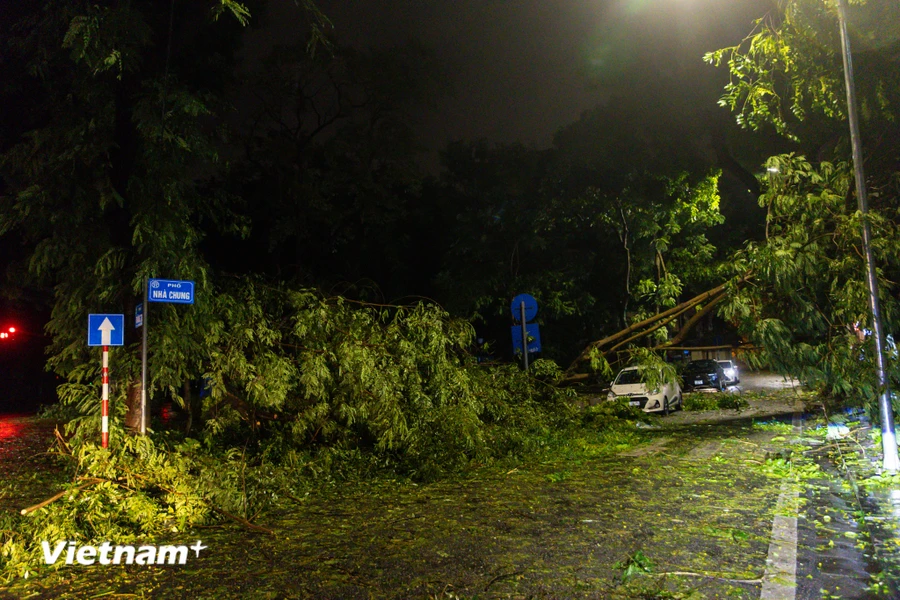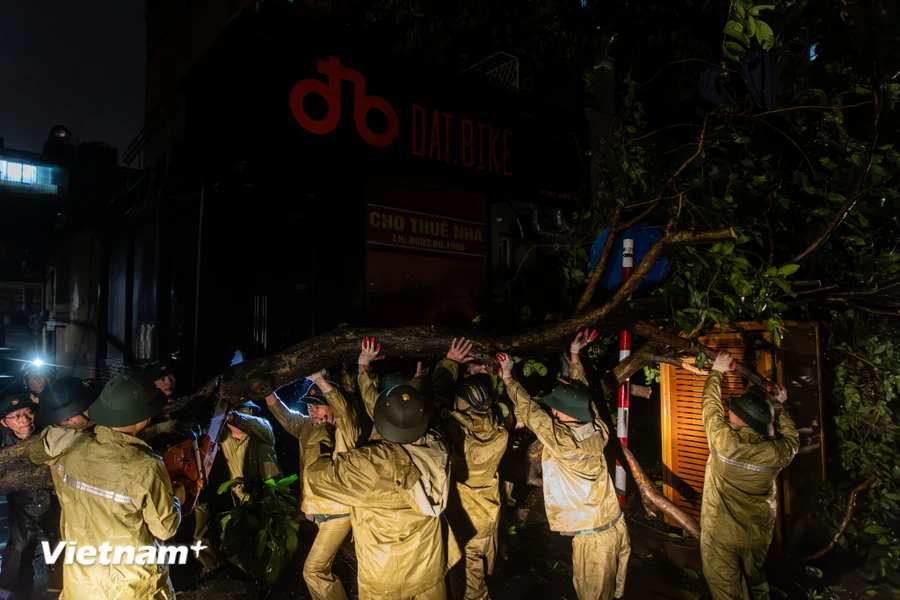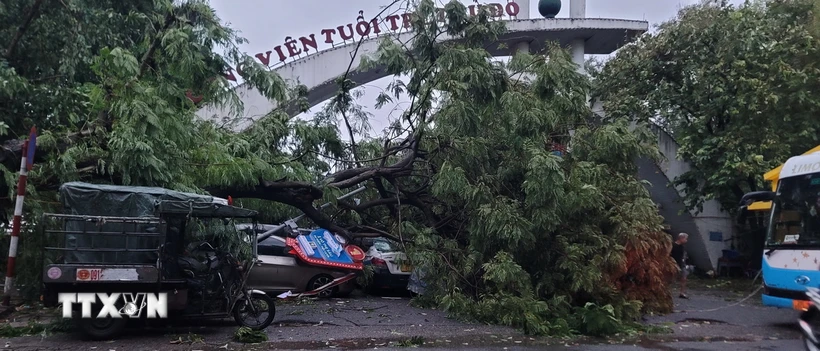HCMC – Typhoon Yagi has weakened into a tropical depression after leaving a trail of destruction in northern Vietnam, according to the National Center for Hydro-Meteorological Forecasting.
By 1 a.m. today, September 8, the typhoon had moved inland, bringing winds of 39-61 km per hour to the Red River Delta region. It is expected to weaken further and dissipate into a low-pressure system by September 9 as it moves westward.
Heavy rain is forecast in many parts of northern Vietnam, with a level 3 risk warning issued for parts of the Gulf of Tonkin and northern Vietnam.
The storm hit the islands and coastal areas of Quang Ninh on September 7, with winds ranging from levels 8 to 13 and gusts reaching levels 10 to 16. It then moved through Haiphong City, Hai Duong Province, and Hanoi City, causing widespread power outages and property damages.
As of 7:00 a.m. this morning, the Vietnam Disaster and Dyke Management Authority reported at least five deaths, 186 injuries, 3,279 damaged houses, and 401 fallen utility poles.
The storm also caused significant agricultural damage, with 121,500 hectares of rice and crops submerged or ruined, 5,027 hectares of fruit trees totaled, and over 1,000 fish farming cages swept away, primarily in Quang Ninh.
More than 40% of the power grid in this province was damaged, with the entire island district of Co To left without electricity. Initial reports suggest fallen trees and debris caused damage to the 110kV transmission lines.
According to the electricity authority, Quang Ninh saw 14 transformer stations of 110KV detached from the grid, and 84 medium-voltage power transmission lines disrupted, leaving over 274,000 customers without power.
In Haiphong, six 110KV power lines were affected, causing a blackout on Cat Hai Island and impacting over 300,000 customers due to interruptions in 50 medium-voltage lines.
Quang Ninh has deployed 2,000 workers to clear debris and restore essential services, including electricity and telecommunications.
Local authorities and traffic police are working to remove fallen trees from the streets and keep people safe.
According to Hanoi Green Trees Park Company 484 trees were reported down across Hanoi City by 3:30 p.m. on September 7. Fallen trees resulted in two deaths and seven injuries.
Meanwhile, in Hoa Binh Province, a landslide killed four people early on September 8. Heavy rains triggered the collapse of a 10-meter hill planted with cassava, burying a house where five people were sleeping. The landslide caused the walls of the home to collapse, and the victims were trapped under the debris.











